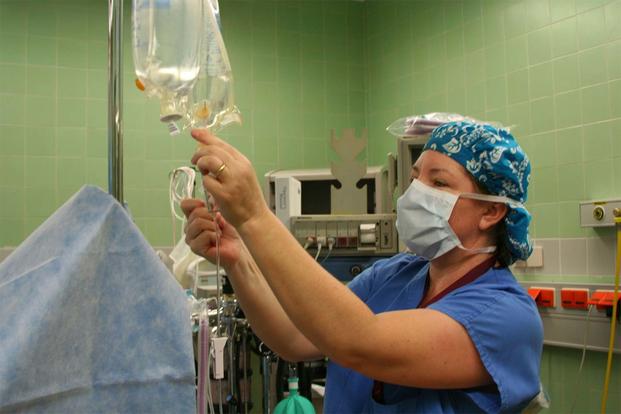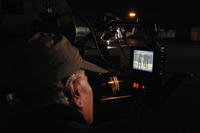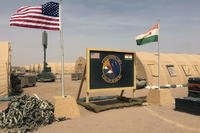Advocates of certified registered nurse anesthetists are again pushing the Department of Veterans Affairs to use them more often -- and not necessarily under doctor supervision -- to improve and streamline anesthesia care at VA hospitals.
The latest effort aims to shed light on facilities such as the Denver VA hospital, which has fallen short in providing proper anesthesiology care, according to Randy Moore, a CRNA, retired veteran and chief executive officer of the American Association of Nurse Anesthetists, and Bruce Weiner, a CRNA and president of AANA.
Last year, the VA announced plans to allow three types of nurse practitioners -- certified nurse practitioner (CNP), clinical nurse specialist (CNS), and certified nurse-midwife (CNM) -- "to practice to the full extent of their education, training and certification, without the clinical supervision or mandatory collaboration of physicians," according to the rule, which went into effect this past January.
It was the first major shift designed in part to shorten wait times for patients, the VA said at the time. However, the provision did not cover certified registered nurse anesthetists because the VA said it wasn't facing a shortage of anesthesiologists.
Related content:
- Advocates: Let Nurse Anesthetists Practice Across the VA
- Nurse Practitioners to Treat Vets Without Doctor Supervision
- VA Suspends Applications for New ID Cards
But that misses the point, Weiner said.
"The VA passed on an important opportunity that would have improved access to anesthesia care for military veterans," he said in a recent interview with Military.com.
Whether the department is aware of the AANA's latest request or it is reconsidering its previous ruling wasn't immediately clear. A VA spokeswoman didn't return Military.com's request for comment by press time.
Weiner cited a report from Colorado's Fox 31 that exposed how 65 to 90 non-emergent surgeries at the Denver VA had either been rescheduled or postponed since August due to insufficient CRNA resources.
"This is under the auspice that it's a result of a shortage of staff, specifically anesthesiologists and certified registered nurse anesthetists. The truth of the matter is, this issue isn't a provider shortage, and it's especially not a doctor or anesthesiologist shortage as has been reported," he said during a telephone interview with Military.com.
"The cancellation and postponements are due to the fact that the VA facilities are not making full use of existing anesthesia providers, specifically the CRNAs," Weiner said.
Weiner and his colleagues believe the issue isn't limited to the Denver VA but affects the entire Veterans Health Administration system.
The VA's definition of acceptable anesthesia care within its facilities, according to the rule published in the Federal Register, is flawed, they said.
"All we ask is for the VA to reconsider the ruling they made in January," Moore said, referring to the omission of CRNAs. "There is an enormous amount of evidence that there are significant delays in surgical and procedural care because of these onerous rules."
According to a Rand Corp. study, the VA employed or otherwise utilized about 600 certified registered nurse anesthetists in fiscal 2014.
Today, the figure is closer to 900 nurse anesthetists -- or more, according to the AANA.
Weiner and Moore reiterated there is no shortage of CRNAs, but rather a limitation in the services the rule allows them to provide. As a result, veterans are not only being inconvenienced, but harmed as a result, they said.
"It's the manner in which they're operating," Weiner said. "Instead of leveraging the expertise of nurse anesthetists by giving them full practice authority, the VA continues to, as Dr. Moore said, operate under this onerous system of supervision where an anesthesiologist is supervising a CRNA doing, [for example], a[n eye] cataract procedure. That sort of supervision is unnecessary."
Weiner said he and Moore last month sent a letter to VA Secretary David Shulkin and Office of Management and Budget Director John Michael Mulvaney expressing concerns, and warning of more backlog, at VA facilities.
The AANA will continue to communicate with VA staff and members of Congress "as appropriate," Moore and Weiner said.
-- Oriana Pawlyk can be reached at oriana.pawlyk@military.com. Follow her on Twitter at @Oriana0214.













